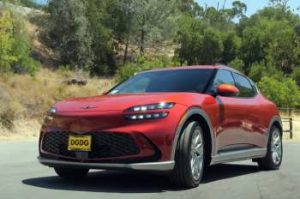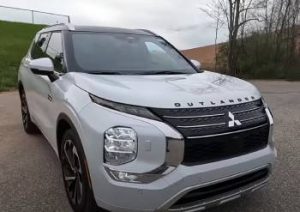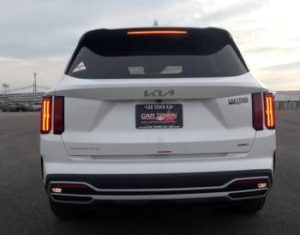The sedan market is crowded, but two names have historically stood out: Honda Accord and Chevy Malibu. Both have a strong lineage, fan following, and street creds, but when you’re thinking of buying one, which should it be?
Let’s break down their strengths and weaknesses in a face-to-face showdown.
A Brief Comparison Table
| Feature/Aspect | Honda Accord | Chevy Malibu |
| Design & Exterior | Sleek, fastback-inspired, modern look | Elegant, classic American design |
| Engine Options | 1.5L turbo, 2.0L turbo, hybrid | 1.5L turbo, 2.0L turbo |
| Interior & Comfort | Quality materials, spacious | Luxurious in higher trims, user-friendly infotainment |
| Safety & Technology | Honda Sensing, Apple CarPlay, Android Auto | Chevy Infotainment 3, lane change alert, forward collision alert |
| Price | Generally higher starting price | More budget-friendly |
| Reliability & Warranty | Renowned for longevity and reliability | Reliable with improved track record |
Honda Accord: The Reliable Classic
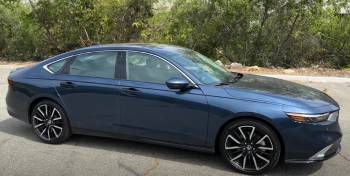
Pros:
- Reliability:
Honda Accords have been praised for their reliability over the years. They tend to run smoothly for years with routine maintenance.
- Resale Value:
Accords have a solid track record for maintaining their value. That’s great news if you ever plan on selling.
- Fuel Efficiency:
Historically, the Accord offers better gas mileage, especially in the hybrid models.
- Safety:
With Honda Sensing, most Accord models offer a suite of safety features, like lane keep assist and adaptive cruise control.
- Performance:
For those who enjoy a little pep in their drive, the Accord’s engines, especially the turbocharged options, offer a spirited ride.
Cons:
- Price:
Generally, the Honda Accord starts at a slightly higher price point than the Malibu.
- Infotainment System:
Some users have found the Accord’s system to be less intuitive.
Also Read: Differences Between Ram 2500 And 3500.
Chevy Malibu: The American Cruiser
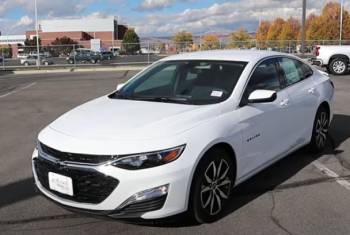
Pros:
- Styling:
The Malibu, particularly recent models, boasts a modern and sleek design.
- Interior Space:
Chevy Malibu generally offers a spacious interior, which is great for both drivers and passengers.
- Budget Friendly:
Generally more affordable than the Accord, the Malibu is a solid choice for those looking for value.
- Tech Features:
With the Chevrolet Infotainment 3 System, users can expect an intuitive experience complete with Apple CarPlay and Android Auto.
- Smooth Ride:
The Malibu is often praised for its smooth and comfortable drive.
Cons:
- Fuel Efficiency:
The Malibu typically doesn’t quite match the fuel efficiency of the Accord.
- Resale Value:
Malibus tend to depreciate faster than Accords.
Key Differences Between Honda Accord and Chevy Malibu
When it comes to the mid-size sedan market, both Honda Accord and Chevy Malibu are standout names. But how do they fare when stacked against each other in detail? Here’s a deep dive into their differences.
Design and Exterior
Honda Accord:
Honda Accord has maintained a sleek and modern design over the years. The recent models sport a fastback-inspired design with a wide stance and a low roofline, giving it a more aggressive and athletic look.
Chevy Malibu:
Chevy Malibu, on the other hand, carries an American touch in its design. It exudes elegance with its sweeping lines and a well-sculpted body. The front fascia with the Chevrolet grille and badge gives it a strong presence.
Performance and Engine Options
Honda Accord:
Accord offers a variety of engines including a 1.5L turbocharged engine and a more powerful 2.0L turbo option. Plus, there’s the hybrid variant for those looking for efficiency. The performance is spirited, especially with the 2.0L turbo, making drives lively.
Chevy Malibu:
Malibu is no slouch either. It comes with options like a 1.5L turbo and a 2.0L turbo engine. While it doesn’t have a hybrid in recent lineups, its 2.0L turbo packs a punch, delivering smooth acceleration.
Interior and Comfort
Honda Accord:
The Accord’s interior is often touted for its quality materials and driver-centric design. Most models come equipped with a touchscreen infotainment system, and the cabin offers ample space for both front and rear passengers.
Chevy Malibu:
The Malibu offers a luxurious feel in its higher trims. Its infotainment system is user-friendly and integrates seamlessly with smartphones. The seating is comfortable, with plenty of legroom, especially in the rear.
Safety and Technology
Honda Accord:
Honda takes safety seriously. With the Honda Sensing suite available in most of its models, drivers get features like lane keep assist, collision mitigation braking, and adaptive cruise control. Additionally, the infotainment system, while occasionally criticized for its usability, comes with Apple CarPlay and Android Auto in most trims.
Chevy Malibu:
Chevy’s Malibu is armed with the Chevrolet Infotainment 3 System, offering easy smartphone integration. On the safety front, it offers features like lane change alert, rear cross traffic alert, and forward collision alert.
Pricing and Value
Honda Accord:
Generally, Accords have a higher starting price. However, many argue that the cost is justified by its reliability, resale value, and the plethora of features.
Chevy Malibu:
Malibu typically starts at a lower price point, making it an attractive option for those on a budget. But, it’s worth noting that its resale value might not be as high as the Accord.
Reliability and Warranty
Honda Accord:
Honda is renowned for building long-lasting vehicles, and the Accord is a testament to that. Many owners report their Accords running smoothly well beyond 200,000 miles with regular maintenance.
Chevy Malibu:
Malibu, while reliable, doesn’t quite have the same reputation for longevity as the Accord. However, it still holds its own in the segment and has shown improvements in recent years.
Also Read: Volvo Protection Package Vs. Protection Package Premier.
Frequently Asked Questions (FAQs)
Historically, the Honda Accord has been lauded for its reliability. Chevy Malibu is decently reliable, but if we’re talking track records, the Accord generally edges out.
Both are classified as mid-sized sedans, but specific dimensions can vary by model year. Generally, the Malibu is slightly longer, but the Accord may offer more interior space depending on configurations.
Yes, the Chevy Malibu is a reliable car. Like any vehicle, its reliability will be dependent on maintenance and care.
“Better” is subjective. Some competitors in the same class include the Toyota Camry, Mazda6, and Nissan Altima. Each has its strengths and trade-offs, and what’s “better” will depend on personal preferences.
Both brands have their strengths. Honda is often praised for reliability and resale value, while Chevy is appreciated for its American craftsmanship and certain tech features.
Not particularly. All vehicles require regular maintenance. The Malibu’s maintenance costs are relatively average for its class.
Wrapping Up
When choosing between the Honda Accord and Chevy Malibu, potential buyers should consider their priorities. If reliability and resale value top your list, the Accord is hard to beat. However, if you’re swayed by design, tech features, and budget-friendliness, the Malibu is a strong contender.
Remember, the best car for you is one that fits your unique needs, lifestyle, and budget. Test drive both, compare the features, and then make your decision. Happy driving!

